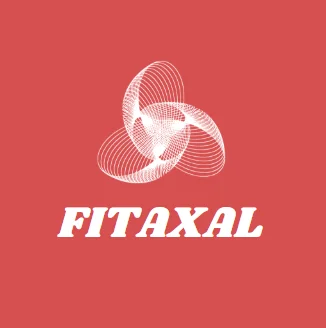As technology barrels forward, quantum computing emerges as one of the most exhilarating frontiers. Within this realm, the topic of quantum factorization especially shines, revealing possibilities we could only dream of a few decades ago. Today, what is a use case of factorization in quantum computing?
How Does Quantum Factorization Work?
![What is a use Case of Factorization in Quantum Computing? [How Does it Work ] 2 How Does Quantum Factorization Work?](https://fitaxal.com/wp-content/uploads/2023/08/How-Does-Quantum-Factorization-Work.png)
At the heart of quantum computing is the principle of quantum superposition. Unlike classical bits that can be either 0 or 1, quantum bits (qubits) can exist in multiple states simultaneously. When it comes to factorization, this means a quantum computer can evaluate numerous possibilities at once.
Quantum Parallelism: A Game Changer
The concept of quantum parallelism is intrinsic to quantum computing. This allows quantum computers to process vast amounts of data concurrently, making tasks like integer factorization lightning-fast.
What is Shor’s Algorithm Used for in Quantum Computing?
Enter Shor’s algorithm, a pioneering quantum algorithm designed specifically for integer factorization. It’s not merely faster than its classical counterparts, but exponentially so! With this algorithm, factorizing large numbers, which traditionally takes millennia, can potentially be achieved in mere seconds.
Can Quantum Computing Break RSA Encryption?
RSA encryption, a bedrock of modern digital security, relies on the premise that factorizing large numbers is infeasible for classical computers. However, with Shor’s algorithm, quantum computers pose a significant threat to this security model.
Quantum Cryptography: A New Dawn
![What is a use Case of Factorization in Quantum Computing? [How Does it Work ] 3 Quantum Cryptography A New Dawn](https://fitaxal.com/wp-content/uploads/2023/08/Quantum-Cryptography-A-New-Dawn-1.png)
But fear not! Quantum computing also offers a solution. Quantum cryptography harnesses the power of quantum entanglement and superposition to create virtually unbreakable encryption.
Advantages of Quantum Algorithms for Factorization
Beyond speed, quantum algorithms, backed by quantum gates and quantum modular exponentiation, bring enhanced accuracy, especially for vast computations. They are not just about doing things faster but doing them better.
Real-world Applications of Quantum Factorization
From optimizing supply chains to advancing drug discovery, the capabilities of quantum factorization extend far beyond academia. In fields where computational complexity reigns, quantum computing brings transformative solutions.
Quantum Error Correction: Safeguarding the Future
As powerful as quantum computing is, it isn’t without challenges. Quantum error correction techniques are crucial in ensuring the reliability and accuracy of quantum factorization algorithms.
Quantum Factorization and Beyond: A Deep Dive into Quantum’s Potential
As we progress into the intricacies of quantum factorization, it’s essential to demystify some related concepts. These form the building blocks of our understanding and appreciation for this transformative field.
How Does Quantum Superposition Impact Factorization Algorithms?
Quantum superposition, one of the cornerstones of quantum mechanics, allows qubits to exist in multiple states simultaneously. In the realm of factorization, this characteristic equips quantum algorithms with the capability to process multiple possibilities concurrently, rather than sequentially as in classical algorithms. This leads to a dramatic speed-up, especially evident in problems like large integer factorizations.
The Role of Quantum Modular Exponentiation in Factorization
Quantum modular exponentiation is a key subroutine in Shor’s algorithm. It efficiently computes the remainder when a number is raised to an exponent and divided by another number. This operation, while straightforward for small numbers, becomes computationally intense for large numbers in classical computing. However, in quantum computing, this process is exponentially faster, making it invaluable in the factorization process.
Relationship Between Quantum Gates and Factorization
Quantum gates are the basic units of quantum processing. Just as classical computers have logical gates (like AND, OR, NOT), quantum computers operate using quantum gates. These gates manipulate qubits, facilitating operations like entanglement and superposition. Their efficient orchestration is essential for the successful execution of quantum factorization algorithms.
Quantum Annealing vs. Factorization
Quantum annealing is a quantum optimization technique, often compared to factorization due to its potential in problem-solving. While both can be applied to certain optimization problems, they operate differently. Quantum factorization, especially through Shor’s algorithm, specifically targets integer factorization. In contrast, quantum annealing is a heuristic method used for finding global minima in optimization problems.
Quantum Algorithm Complexity: A Comparison with Classical Counterparts
Quantum algorithm complexity is a measure of the amount of resources (like time or qubits) an algorithm needs. Comparatively, quantum algorithms often exhibit reduced complexity than classical ones for specific problems, like factorization. While classical factorization algorithms may have exponential time complexity, quantum versions, thanks to the principles of superposition and entanglement, can achieve polynomial time complexity.
Current State of Research in Quantum Integer Factorization
The field of quantum integer factorization is bustling with research. Laboratories and institutions worldwide are racing to improve the efficiency and applicability of quantum factorization algorithms. As hardware progresses with better qubit stability and improved quantum error correction, the feasibility of practical quantum factorization is drawing ever closer.
Impacting Other Fields: The Quantum Factorization Ripple Effect
Beyond cryptography, the benefits of quantum factorization are making waves in numerous sectors:
- Finance: Optimizing complex trading algorithms and risk assessment.
- Healthcare: Analyzing large genetic datasets for personalized medicine.
- Energy: Enhancing simulations for renewable energy solutions.
FAQs: Diving Deeper into Quantum Factorization
Q: How does entanglement contribute to quantum factorization?
A: Quantum entanglement allows multiple qubits to interact in a way that measuring the state of one qubit instantly determines the state of another, facilitating faster and more efficient computation.
Q: What is the significance of prime factorization in quantum computing?
A: Prime factorization is fundamental for encryption. With quantum computing’s potential in factorization, it underscores the need for new cryptographic systems.
Q: Are there practical implementations of quantum factorization yet?
A: We’re on the cusp of real-world applications. Quantum computers are rapidly advancing, and soon practical implementations will be more commonplace.
Q: Can quantum factorization impact fields other than cryptography?
A: Absolutely! Quantum factorization can revolutionize industries, from finance to healthcare, by optimizing complex computational tasks.
Also Read: Which Part of the Drug Discovery Life Cycle can Quantum Computing Impact the Most?
Final Words
In wrapping up, quantum factorization isn’t just an academic exercise or a potential threat to cryptography. It’s a testament to the monumental leaps quantum computing promises across sectors. As we navigate this quantum realm, we’ll continually uncover new horizons, pushing the boundaries of what’s possible.
Concluding our analysis of “What is a use Case of Factorization in Quantum Computing?,” we hope that this article has acted as a definitive resource, providing you with clarity and enabling you to make well-informed choices.


![What is a use Case of Factorization in Quantum Computing? [How Does it Work ] 1 What is a use Case of Factorization in Quantum Computing](https://fitaxal.com/wp-content/uploads/2023/08/What-is-a-use-Case-of-Factorization-in-Quantum-Computing-.png)
